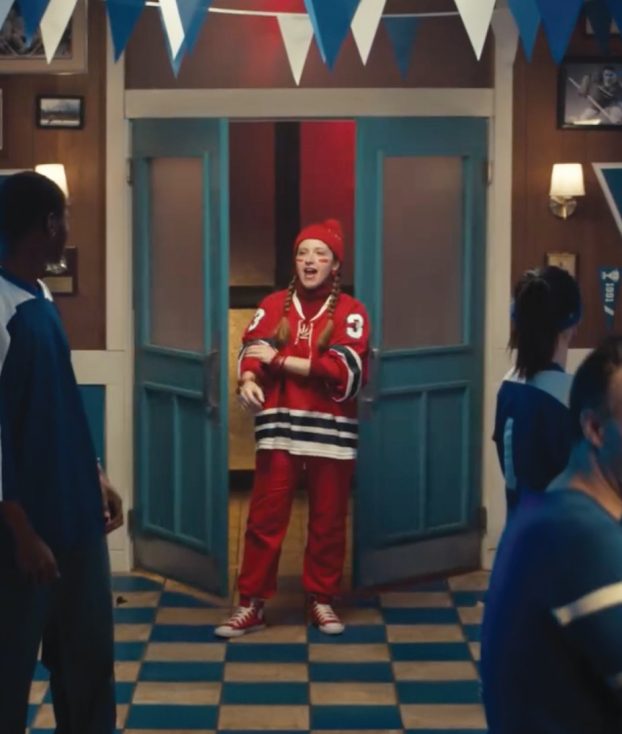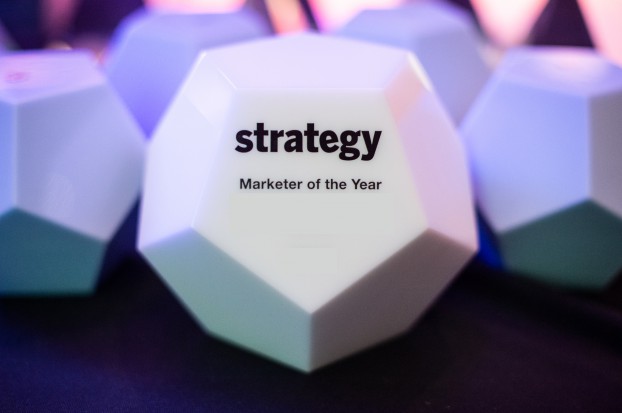AGENCY | SILVER + DESIGN | BRONZE + DIGITAL | BRONZE
This story was originally published in the 2023 fall issue of strategy magazine.
Zak Mroueh can see the forest for the trees. No more digging through the weeds. No more sweating the small stuff. He’s slowly stripped himself of his CCO and CEO hats, stepped into the role of creative chairman, and is now, simply, a leader with a vision.
“My job is to select the projects I want to focus on, jump in as needed, and coach, mentor and support our creative leaders,” the Zulu Alpha Kilo founder tells strategy.
“When I started the agency 15 years ago,” he goes on, “I set the creative vision of what we wanted to become. And now we’re really seeing it unfold. We haven’t achieved everything. However, one part of the two-paragraph vision was to have global clients want to come to us to solve their challenges – and that’s happening.”
Mroueh is talking, in part, about when his agency made Canadian advertising history. Earlier this year it became one of the first Canadian independents to have a homegrown commercial air during the American broadcast of the SuperBowl. The spot was for Amsterdam-based client Booking.com, and a big contributor to the campaign’s success was the leadership team that he – alongside CEO Mike Sutton – handpicked and empowered to take the reins.
The Melissa McCarthy-starring spot (see sidebar) was developed in close quarters with the New York, Toronto and Vancouver offices. Each outpost is autonomously managed by a set of high-ranking creative, design and strategy officers – Jenny Glover, Brian Murray, Stephanie Yung, Heather Segal and Maxine Thomas in TO; Addie Gillespie, Dean Lee and Erica Shalinsky in VAN; and former Droga5 creative leader Tim Gordon and Emily Garvey in NYC – and each have been playing a key part in helping to grow Zulu’s revenue by 42% over the last year.
“The new business has been crazy,” says Mroueh. “We’ve turned down a shitload of pitches, but we’ve still grown… Creatively, we’re firing on all cylinders.”
It probably also doesn’t hurt that Mroueh hired a CMO to work directly with him to build the agency’s brand globally. Christine McNab was brought on to explore opportunities outside of Canada, which could soon include Europe as Mroueh hints at potential expansion plans there. Not only is McNab supporting the agency’s vision to go global, she’s also helping to shape other growth areas, from its production offering Zulubot to media innovation and CX capabilities.
Between the end of 2022 and mid-2023, Zulu Alpha Kilo made 20 hires across all three of its offices for roles in client services, creative, design, strategic planning and production. It also got into the business of media with newly launched Zulumatic Media, a digitally led division that’s geared towards finding stronger connections between creativity and media. That division is being led by Alicia Petralia, who joined in April to manage a team of five staffers, with plans to grow even more. Also this year, the agency picked up high-profile brand accounts with the likes of Sephora, the Art Gallery of Ontario and Campbell’s in the U.S.
Mroueh believes that marketers are seeking Zulu’s services because of its reputation for “transformative work,” based on its foundational platform work for Bell when the agency first formed back in 2007.
For example, Pizza Pizza, a brand that was once very “conservative” with its advertising, says Mroueh, is on a mission to reinvent itself and turned to Zulu to help it along that path via campaigns that go against the pizza QSR grain (see p.35-36).
“Clients see the agency as one that’s disrupting categories. And so they come to us when they want to disrupt their own,” adds Mroueh.
Meanwhile, Sutton points to the firm’s “breadth and diversity of what a creative solution looks like” as the reason clients are knocking on Zulu’s doors.
“Clients tend to see us as an innovation agency,” thanks to work like the prototype school desk it created for D2L, the AI-led experiential platform it developed for Sephora, the NYC fire hydrants that it turned into mini water parks for non-profit Street Labs, and the experiments it conducted on how music impacts spending for Interac. “What I’m hearing from brands is that a lot of what we create doesn’t look like the quintessential creative solution,” adds Sutton.
Innovation also comes from the agency’s expertise in the digital and social realm, which it’s been fine-tuning for a couple years now, working closely with Snapchat as its official production partner for its augmented reality (AR) lenses. Zulu produces lenses for Snap’s brand partners, like Disney, Hulu and Starbucks, so that the experiences are tailor-made for Canadian audiences. “We’re Canada’s first production partner for Snap. Nobody really knows that,” says Mroueh. “But we’ve produced over 100 lenses in the past year.”
As its pool of talent, capabilities and clients continue to grow, so too does its footprint and the need for leaders like Mroueh and Sutton to “spread and build the Zulu culture across borders,” says the CEO, who recently completed a leadership and performance coaching certificate at Brown University in the U.S. “I think we’ve realized that the future of the agency requires us to build leaders across the offices.”
That cross-pollination of Zulu’s culture, teams and work is a part of the agency’s philosophy, says Mroueh. Although it has different locations, the team of 181 will always operate as one.
“Healthy competition is good,” he says of the reality of the ad business, where there’s no escaping territorial behaviour in agencies that have multiple offices. “But when we work on a project,” whether that’s pitching for new work or a building out a cross-border campaign, “I always set the ground rules at the begining: we’re here to support each other.”
When asked how the shop plans to maintain its indie spirit alive while growing its brand globally, Sutton says it will use Zulu’s innate decisive nature to its advantage.
“As companies get bigger, they can sometimes be paralyzed with decision-making. But what we’ve had to do is empower the leaders coming into our offices to have that same decisive spirit… as well as that accountability of carrying Zulu’s entrepreneurial spirit forward.”
New Business
Booking.com, Sephora, AGO, Campbell’s US, DUCA, Vancouver Island Ferry Company (VIFC), Campbell’s Meals & Beverages, Virgin Plus
Offices
Toronto, Vancouver and New York City
Staff
181
CASES | AGENCY

1. Road trip! Zulu created Booking.com’s “Somewhere, Anywhere” campaign (featuring Melissa McCarthy) to celebrate the joy of vacation planning – something that just wasn’t possible during the pandemic. Airing during the Super Bowl, the successful North American campaign also resonated internationally, showcasing its global appeal.

2. Pizza Pizza and the agency introduced “Fixed-Rate Pizza,” playing off traditional late-night 1-800 ads. The campaign created buzz with no price cuts or new menu items.

3. HomeEquity Bank’s “Digital Poppy” campaign sent 300 soldiers’ letters to their original addresses, raising awareness and funds for Canadian veterans via QR code donations.

4. D2L and Zulu’s “Unstandardized Desk,” designed for varied learning styles, showcased its commitment to personalized education, boosting brand awareness and sparking conversations.

5. Sephora’s “Illumination” campaign celebrated Canada’s diversity, showcasing 140,000 skin tones with Colour iQ technology, highlighting beauty, inclusion and business growth.
CASES | DESIGN

1. Learning new tricks. Zulu Alpha Kilo rebranded DNA My Dog to position it as a credible guide for pet parents, focusing on diet, activities and behaviour. The strategy combined playful and scientific elements, and featured a logo with genetic dots, bright colours and playful photography.

2. Zulu previously unveiled “The Micropedia of Microaggressions,” the first-ever encyclopedia of these subtle yet harmful slights. A follow-up to this was the “Worn Down by Words” art exhibit, which depicted their emotional impact in workplaces and schools.

3. For the Vancouver Island Ferry Company, the shop reimagined the Vancouver-Nanaimo ferry journey with a focus on ease. Inspired by the Salish Sea, the new brand design featured a unique, waterline-dipping wordmark.
CASES | DIGITAL

1. CSR in the metaverse. The shop created “Homes For Heroes,” a virtual village in Decentraland’s metaverse to fundraise for real homes for veterans. Done in partnership with Homes for Heroes, the campaign was the first corporate social responsibility initiative in Decentraland, connecting the metaverse with a real-world problem.

2. Campbell’s “Mega Bites Not MegaBytes” promoted Goldfish for adults using nostalgia, and introduced larger sizes and new flavours. Mega Bites Mountain, a gaming experience in Decentraland, also marked Goldfish’s debut in the metaverse.

3. Zulu and Interac’s “Sound Shopping” campaign aimed to improve millennial spending habits. It was shared on streaming platforms and social media.























